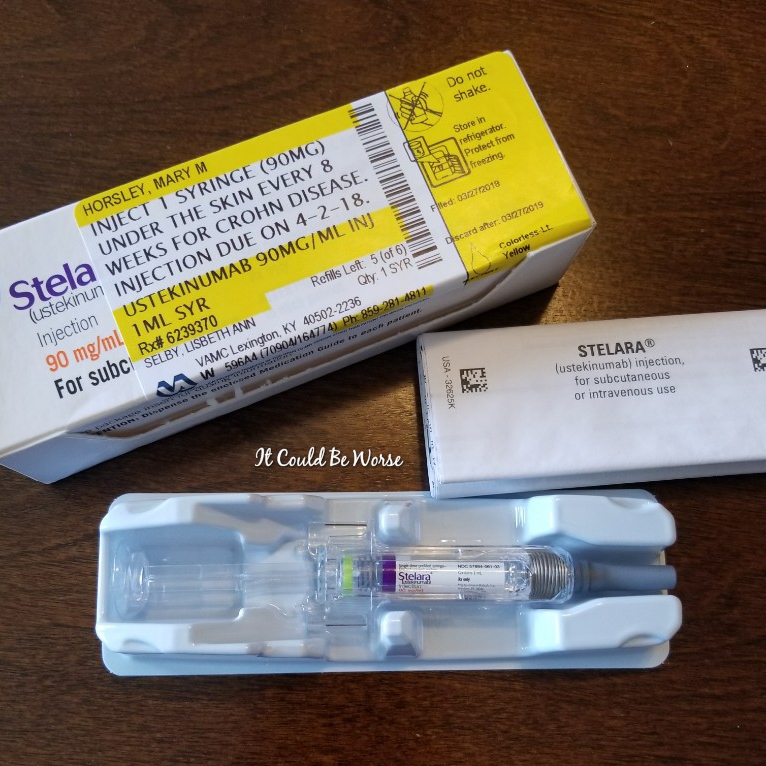When you have Crohn’s disease and IBD, you might try many different types of medications before you find what works for you.
A topic that’s rarely addressed is the safe storage and disposal of medications. We must inform ourselves of proper storage and disposal methods. Read the labels and medication leaflets and consult your pharmacist for further information.
Storage
Unrefrigerated: Pills
Most medications come in pill form and are typically kept in a bottle in your bathroom cupboard. Crohn’s patients may be prescribed several different medications to manage their disease, with some taking many pills at a time. These medications, which include steroids, immunosuppressants, and painkillers, should be kept away from children and pets. Prescription medications should not be taken by anyone other than the person for whom they’re prescribed. Accidental dosages, medication abuse, and theft can cause harm.
Pills should be stored in a cool, dry environment. Heat, light, and moisture can affect their potency. Keep medications in their original packaging with labels, when possible. I carry multiple medications, so I store mine in a pillbox and keep a printout from my doctor’s office listing all of my prescription medicines. Most medications will keep for one to two years. Discuss expired medicines with your pharmacist before continuing to take them as some can lose their effectiveness or be harmful to health.
Refrigerated: Patches, injections, quick-release pens
Some medications have specific storage requirements; for example, medicines that need to be kept cold can lose their potency if stored at room temperature. Others have a short shelf life outside of a refrigerator.
I keep some of my medications, such as Stelara (ustekinumab), a liquid injectable medication, inside a vault lockbox stored in my fridge. This box keeps my medication cold for a short period while I’m in transit.
Prefilled syringes, quick-release pens, and vials of liquid medications need to be kept cold. Some need to be taken out of the fridge and brought to room temperature before using.

Disposal
At home
Contrary to popular belief, it’s OK to flush some medications down the toilet. The U.S. Food and Drug Administration website provides guidance on what medications can be flushed if a takeback facility is unavailable. Alternatively, some medications can be thrown out in your household trash. Crush pills and empty capsules before mixing into an unappealing substance such as kitty litter or coffee grounds to deter children or pets from ingesting. Then put the mixture into a sealed bag before throwing in the garbage.
Pharmacy programs
If you are unsure about how to store or dispose of your medications, ask your pharmacist for advice. Pharmacy chains like CVS and Walgreens offer medication takeback programs. Used pain patches can contain medication, so dispose of these with care. Unused syringes, patches, and other items can be returned for proper disposal. Sharps containers are available. The company that manufactures Humira (adalimumab) offers a free sharps container and a cooler for storage and disposal.
Police station drop-offs
If you still have problems getting rid of your medication, some sheriff’s departments and police stations will dispose of unused medications. Some may even provide a drop-off box for this purpose. Many stations participate in the National Prescription Drug Take Back Day each October. Contact your local department for more information.
Remember, medication should only be taken by the person for whom it’s prescribed. Read all medication labels and consult your pharmacist for advice about storage and disposal.
***
Note: IBD News Today is strictly a news and information website about the disease. It does not provide medical advice, diagnosis, or treatment. This content is not intended to be a substitute for professional medical advice, diagnosis, or treatment. Always seek the advice of your physician or other qualified health providers with any questions you may have regarding a medical condition. Never disregard professional medical advice or delay in seeking it because of something you have read on this website. The opinions expressed in this column are not those of IBD News Today, or its parent company, BioNews Services, and are intended to spark discussion about issues pertaining to IBD.

